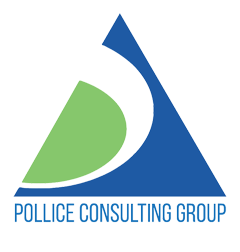Businesses today face a variety of challenges, many of which stem from rapid technological advancements, economic fluctuations, and evolving consumer expectations. Here are 14 key challenges that my clients continuously point to as being threats to their business. Of course, not all will apply to one sector however, some will apply to your business.
Digital Transformation: Keeping up with new technologies and integrating them into existing business models is a significant challenge. This includes adopting AI, machine learning, cloud computing, and other digital tools.
Cyber security: As businesses become more digital, the risk of cyber attacks increases. Protecting sensitive data and maintaining customer trust are paramount.
Economic Uncertainty: Fluctuating economic conditions, such as inflation, recession fears, taxes and changes in trade policies, can impact business stability and growth.
Globalization: Operating on a global scale introduces complexities related to cultural differences, regulatory compliance, and supply chain management.
Talent Acquisition and Retention: Finding and retaining skilled employees is increasingly difficult, especially in competitive fields like technology, manufacturing and healthcare. (see my May ’23 paper)
Sustainability and Environmental Responsibility: There is growing pressure on businesses to adopt sustainable practices and reduce their environmental footprint.
Regulatory Compliance: Navigating a complex web of local, national, and international regulations can be challenging, particularly for businesses in highly regulated industries.
Consumer Expectations: Customers expect personalized, seamless, and immediate experiences. Meeting these expectations requires investment in customer service and technology.
Supply Chain Disruptions: Events like natural disasters, geopolitical tensions, and pandemics can disrupt supply chains, leading to delays and increased costs.
Innovation and Competition: Staying ahead of competitors by continuously innovating products and services is essential but challenging.

Financial Management: Efficiently managing cash flow, investments, and debts is crucial for business sustainability.
Remote Work and Workforce Management: The shift to remote work has introduced new challenges in managing and engaging a distributed workforce.
Cultural and Diversity Issues: Building a diverse and inclusive workplace is important but can be difficult to achieve and maintain.
Marketing and Brand Loyalty: With the rise of social media and digital marketing, businesses must find new ways to connect with and retain customers.
Addressing these challenges requires strategic and operational planning, corporate flexibility and adaptability, continuous investment in technology and human resources.
To address the numerous challenges facing them today, businesses can adopt a range of strategies and practices:
Embrace Digital Transformation: Invest in technology to streamline operations, improve customer experiences, and stay competitive. This includes adopting cloud computing, AI, machine learning, and automation tools.
Enhance Cybersecurity: Implement robust cybersecurity measures, conduct regular security audits, and educate employees on best practices to protect against cyber threats.
Adapt to Economic Conditions: Develop flexible business models and financial strategies to navigate economic uncertainties. This might include diversifying revenue streams and building reserves for tough times.
Manage Global Operations Effectively: Use advanced supply chain management tools, stay informed about international regulations, and cultivate cultural awareness to operate smoothly on a global scale.
Attract and Retain Talent: Offer competitive salaries, benefits, and opportunities for career advancement. Foster a positive workplace culture and provide continuous learning and development programs. (see my May ’23 paper)
Prioritize Sustainability: Adopt sustainable practices such as reducing waste, conserving energy, and using eco-friendly materials. Communicate these efforts to customers and stakeholders to build a positive brand image.
Ensure Regulatory Compliance: Stay updated on relevant laws and regulations. Use compliance management software and seek legal advice when necessary to avoid penalties and legal issues.
Meet Consumer Expectations: Use data analytics to understand customer preferences and behavior. Invest in customer service, provide personalized experiences, and respond quickly to feedback.

Strengthen Supply Chains: Diversify suppliers, invest in supply chain visibility tools, and create contingency plans to mitigate disruptions.
Foster Innovation: Encourage a culture of innovation by supporting creative thinking and experimentation. Invest in research and development to stay ahead of market trends.
Optimize Financial Management: Implement robust financial planning and analysis tools. Monitor cash flow closely, manage debts wisely, and make informed investment decisions.
Adapt to Remote Work: Use collaboration tools to manage remote teams effectively. Foster a sense of community and ensure clear communication to keep remote employees engaged and productive.
Promote Diversity and Inclusion: Implement policies and practices that promote diversity, equity, and inclusion. Provide training to foster an inclusive workplace culture and address any biases.
Innovate Marketing Strategies: Leverage social media, content marketing, and data analytics to reach and engage customers. Focus on building strong, authentic relationships with your audience.
Focus on Continuous Improvement: Regularly review and refine business processes, products, and services. Encourage feedback from employees and customers to identify areas for improvement.
By proactively addressing these challenges with strategic and innovative approaches, businesses can position themselves for long-term success and resilience.

Nicholas Pollice is President of The Pollice Management Consulting Group located in Niagara, Ontario, Canada. An international facilitator, presenter and consultant, he is known as an operations management leader and coach. Nicholas conducts programs in leadership, supervision, communication, negotiation, conflict resolution and strategic planning. He has been an international consultant since 1989 and is the author of several professional publications. His presentations have been consistently ranked in the top 10% throughout North America. See Nicholas’ bio, his other publications and services on the PMCG. Website at www.pollicemanagement.com


